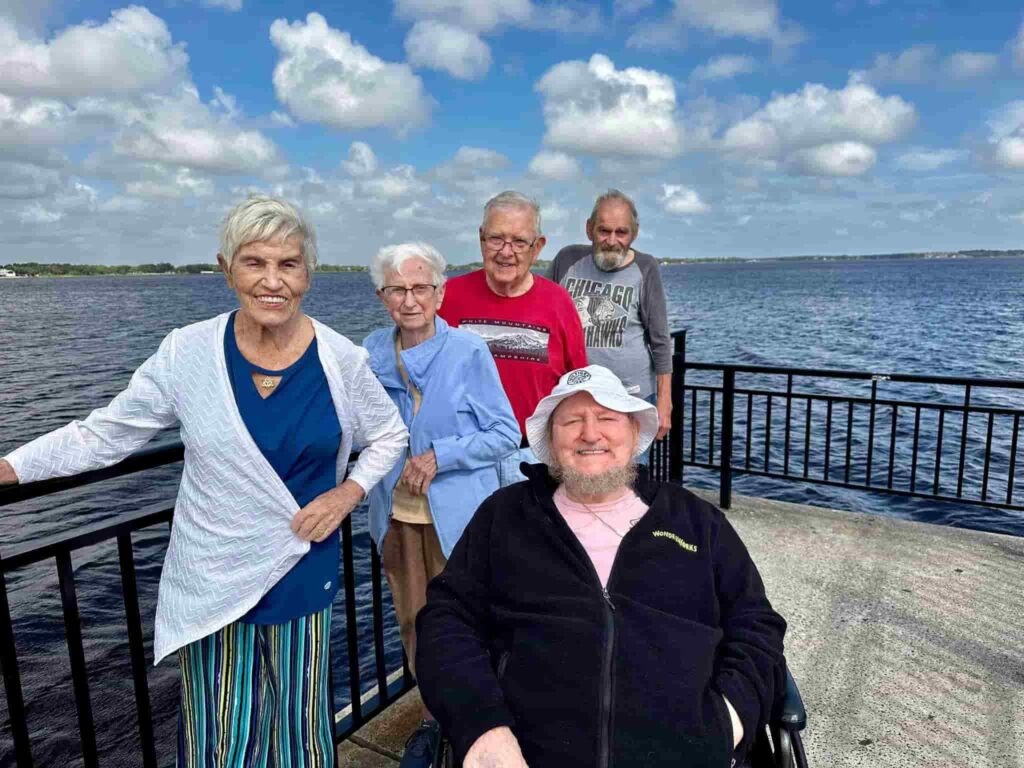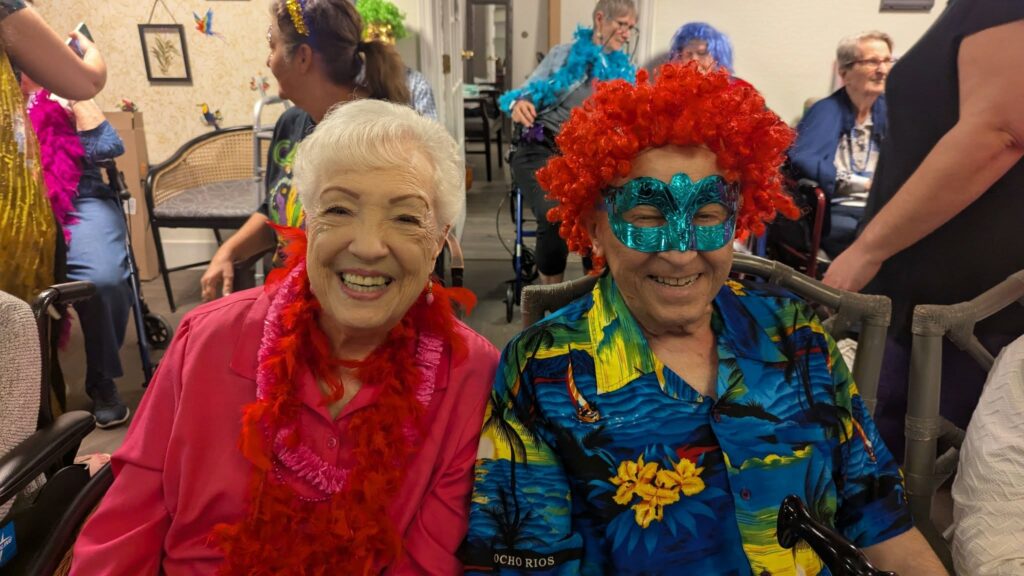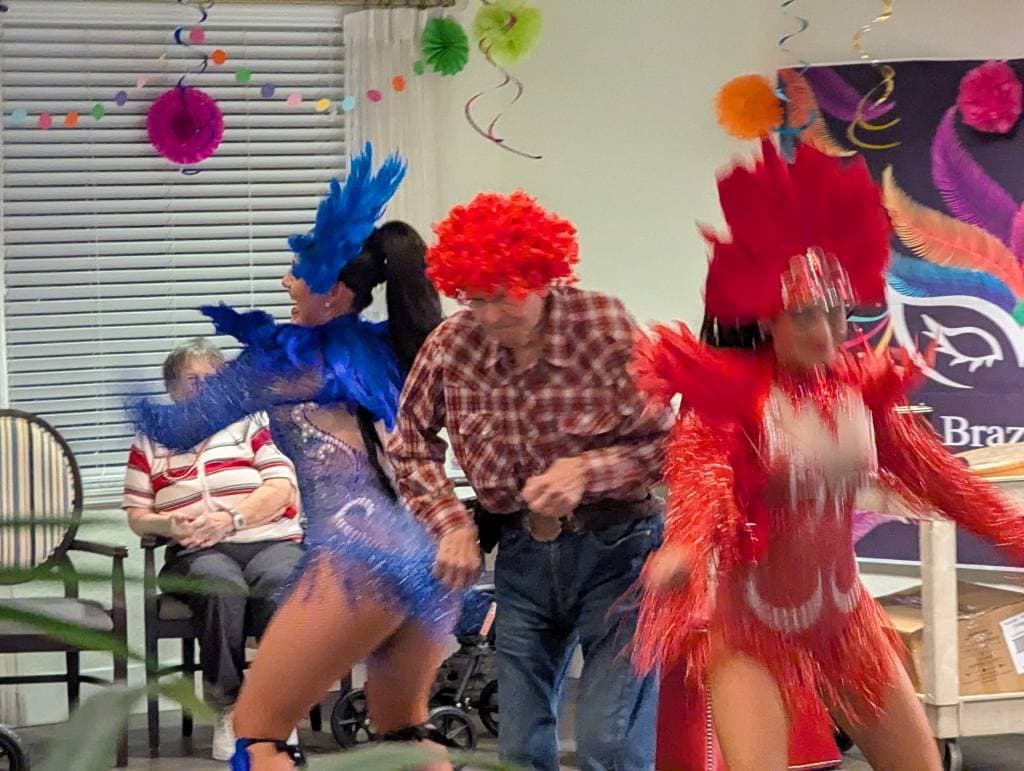Loneliness isn’t just an emotional struggle—it has serious health implications. According to the National Institute on Aging (NIA), prolonged social isolation can lead to higher risks of dementia, depression, and heart disease. A study published in The Journals of Gerontology found that older adults with strong social networks had a 50% lower risk of cognitive decline compared to those who were isolated.
Moreover, the Centers for Disease Control and Prevention (CDC) states that social isolation increases the risk of premature death at levels comparable to smoking, obesity, and physical inactivity. In other words, staying socially connected is as vital as maintaining a healthy diet or exercising regularly.
The Positive Impact of Social Engagement
Engaging in social activities provides numerous physical and mental benefits, including:
✅ Lower Stress Levels – Socializing reduces cortisol, the stress hormone, helping seniors feel more relaxed and emotionally stable. (Harvard Health Publishing, 2022)
✅ Improved Heart Health – A study in The American Journal of Cardiology found that seniors with active social lives had lower blood pressure and reduced inflammation markers.
✅ Enhanced Cognitive Function – Social engagement stimulates the brain, which may help delay the onset of dementia and Alzheimer’s disease. (National Institute on Aging, 2021)
✅ Greater Life Satisfaction – A study published in Psychological Science found that seniors who engage in meaningful relationships report higher levels of happiness and life satisfaction.
Clearly, socialization isn’t just a luxury—it’s a necessity for a healthy and fulfilling life.

Simple and Effective Ways to Encourage Social Interaction in Seniors
Helping an aging parent stay socially active might seem simple at first—just encourage them to get out more, right? But in reality, there are deeper psychological, emotional, and logistical barriers that families often overlook. Many seniors hesitate to engage socially, not because they don’t want to, but because they face challenges that younger adults might not recognize.
This guide goes beyond the usual advice to tackle common myths, overlooked obstacles, and practical ways to help your loved one regain their social confidence and thrive.
💭 Understanding the Barriers: Why Seniors May Withdraw Socially
Before you can encourage your parent to be more socially active, it’s crucial to understand why they may be hesitant in the first place. Many families assume that if a senior isn’t socializing, it’s simply because they “don’t feel like it.” But the truth is, social withdrawal is often a sign of deeper struggles.
🚧 Common Barriers to Socialization in Seniors
🔹 “I don’t have anyone to socialize with anymore.”
- Reality: Many seniors experience the loss of friends, spouses, or family members, leading to shrinking social circles. Unlike younger adults, they may not have access to natural opportunities to form new friendships.
- Solution: Encourage group activities where they can meet like-minded peers, such as hobby clubs, religious groups, or senior centers. Even reconnecting with old acquaintances can help.
🔹 “I feel like I don’t belong anywhere anymore.”
- Reality: After retirement, many seniors lose their sense of identity tied to their careers or roles in the family. Without that, they may feel disconnected from social environments.
- Solution: Help them rediscover new roles and passions—whether through volunteering, mentoring, or joining discussion groups that align with their experiences.
🔹 “I’m too old to make new friends.”
- Reality: Many seniors believe that making friends is something that happens naturally when you’re younger, but not later in life.
- Solution: Challenge this belief by sharing stories of other older adults who have built new friendships. Remind them that many others are in the same situation and looking for companionship too.
🔹 “I don’t want to be a burden.”
- Reality: Some seniors fear being dependent on others and avoid social activities because they worry about needing assistance or inconveniencing others.
- Solution: Provide accessible options that don’t make them feel like they require extra help—such as local senior outings, online group calls, or small social gatherings.
🔹 “I can’t keep up with younger people’s conversations anymore.”
- Reality: Cognitive changes or hearing difficulties can make social settings overwhelming, leading seniors to withdraw.
- Solution: Find quieter, one-on-one or small group settings where they can feel comfortable engaging without pressure.
👣 Practical Steps to Help Your Parent Reconnect Socially
Once you understand their barriers, you can tailor your approach to meet their specific needs. Here are concrete ways to encourage social engagement:
- Start Small: One Social Commitment at a Time
Don’t expect them to jump into a full social calendar overnight. Instead:
✅ Suggest one weekly outing (e.g., lunch with an old friend, a book club, or a class).
✅ Make it low-pressure—they can go just to observe at first.
✅ Focus on activities that fit their interests rather than generic senior programs.
📌 Example: If your parent loves gardening, help them find a local gardening club instead of suggesting a generic senior group.
- Leverage Their Existing Networks
Many seniors already have connections but may have lost touch. Help them reconnect with:
📞 Old friends and neighbors – Encourage them to call or write to past acquaintances.
🎭 Former colleagues – Some retirees enjoy catching up with people from their professional past.
🛐 Faith communities – Many religious groups offer built-in social opportunities.
📌 Example: Offer to help them write an email or set up a Zoom call with an old friend they’ve lost contact with.
- Encourage Multi-Generational Interactions
Not all socialization has to be with peers—spending time with younger generations can be incredibly rewarding.
👶 Grandchildren & family visits – Regular time with younger family members can boost happiness and mental stimulation.
🛠️ Mentoring & Volunteering – Seniors can share their expertise with younger adults through mentoring programs.
📚 Intergenerational activities – Libraries, schools, and community centers often have programs that connect seniors with younger generations.
📌 Example: If they love storytelling, they could volunteer to read to children at a local library.
- Introduce Senior-Friendly Technology for Socializing
Many seniors avoid technology because they feel intimidated by it, but when introduced correctly, it can be a powerful tool for connection.
💻 Video calls – Teach them how to use Zoom, FaceTime, or Skype for calls with family and friends.
📲 Senior-friendly apps – Introduce them to apps like Nextdoor (for local communities) or Facebook groups where they can connect with people who share their interests.
🎮 Online games & communities – Some seniors enjoy playing games like chess or Scrabble online, which can lead to meaningful interactions.
📌 Example: If they’re skeptical about learning a new app, start with something simple like showing them how to voice message on WhatsApp before introducing video calls.
- Address Mobility and Transportation Concerns
One of the biggest hidden barriers to socialization is lack of transportation.
🚗 Offer rides – If possible, schedule a routine where family or friends can help with transportation.
🚌 Look into community transport services – Many cities offer free or low-cost senior transportation programs.
🏡 Explore in-home social options – If mobility is an issue, focus on virtual social activities.
📌 Example: Help them register for a senior rideshare service so they can attend social events without relying on family members.
🚀 Breaking the Cycle: Turning Socialization Into a Habit
Social withdrawal feeds itself—the less someone socializes, the harder it is to start again. Helping your parent build a routine around socialization can make a long-term difference.
🌟 Key Takeaways:
✅ Start small and focus on meaningful interactions.
✅ Encourage existing connections before pushing new activities.
✅ Offer support with technology and transportation.
✅ Make social engagement a routine, not just a one-time event.
Why Social Life Flourishes in Senior Living

🧠 The Science Behind Socialization and Aging
Before diving into how senior living communities enhance social life, it’s essential to understand why staying socially connected matters for seniors’ health and happiness.
📌 Loneliness can be as harmful as smoking 15 cigarettes a day, according to the National Institute on Aging. Studies show that social isolation increases the risk of dementia, heart disease, and depression.
📌 Seniors who maintain strong social connections have a 50% lower risk of cognitive decline, as reported in The Journals of Gerontology.
📌 Engaging in frequent social activities reduces stress and increases life satisfaction, leading to greater emotional resilience. (Harvard Health Publishing, 2022)
Given these facts, it’s clear that staying socially active is just as crucial as regular exercise and a healthy diet—and senior living communities are uniquely positioned to support this need.
🏡 Built-In Social Opportunities in Senior Living
One of the biggest advantages of senior living is that it naturally removes many of the barriers that prevent seniors from socializing. Here’s why:
- A Community Atmosphere That Encourages Connection
In a senior living community, residents aren’t just neighbors—they become friends. Unlike traditional neighborhoods, where seniors may feel disconnected, here they are surrounded by peers who share their stage of life.
✅ Common areas like lounges, libraries, and game rooms create organic opportunities for interaction.
✅ Dining rooms serve as social hubs where seniors share meals, stories, and laughter.
✅ The close-knit environment makes it easy to form deep and meaningful connections.
- Daily Activities That Make Socializing Effortless
Unlike aging in place, where finding social activities requires extra effort, senior living communities provide structured opportunities for interaction.
🎭 Group Activities & Events: From live music nights to themed parties, there’s always something happening.
🎨 Hobby-Based Socialization: Residents can join art classes, book clubs, gardening groups, and more.
🚍 Excursions & Outings: Scheduled trips to local attractions, parks, and restaurants keep life exciting.
- No More Logistical Barriers to Socialization
One of the biggest reasons seniors become socially isolated at home is difficulty accessing transportation or mobility challenges.
🚗 Senior living communities remove these barriers by offering:
✅ On-site amenities, so there’s no need to travel far for activities.
✅ Scheduled transportation for shopping, medical appointments, and group outings.
✅ Easy access to fitness programs and walking paths to keep residents active and engaged.
- A Supportive Environment That Builds Confidence
Many seniors hesitate to engage socially because they fear being a burden or feel self-conscious about their physical or cognitive changes.
Senior living communities create an environment where everyone is included, regardless of their circumstances:
💙 Trained staff encourage participation in a way that feels comfortable.
💬 Social clubs cater to different interests, ensuring there’s a place for everyone.
🧘 Wellness programs focus on mental and emotional well-being, helping seniors feel more confident in social settings.
💡 The Unexpected Joys of Senior Living Socialization
Beyond the structured activities and community design, there are surprising ways social life flourishes in senior living:
🌅 Morning coffee meetups on the patio that turn into cherished traditions.
🎉 Birthday celebrations that bring the entire community together.
🎶 Spontaneous sing-alongs, movie nights, and storytelling sessions.
📝 Residents creating their own clubs and traditions, from poetry circles to board game nights.
Unlike aging at home—where social interaction may be occasional—in senior living, opportunities for connection are woven into daily life.
You might also be interested in: Rediscovering Love After 70s, Love Doesn’t Retire

🔹 Final Thoughts: A Socially Enriching Life Starts Here
Socialization isn’t just about avoiding loneliness—it’s about thriving in a vibrant, engaging community. Senior living makes it easy to stay connected, rediscover old passions, and build meaningful relationships that enhance health and happiness.
For families wondering how to help an aging parent stay socially engaged, Madison at Clermont provides an environment where social life isn’t an afterthought, but a way of life. With daily activities, shared dining experiences, and a welcoming atmosphere, residents have countless opportunities to form friendships and stay actively involved in a supportive community.
💡 Encouraging seniors to stay social isn’t about pushing them—it’s about helping them rediscover the joy of connection in a place that makes it effortless.







